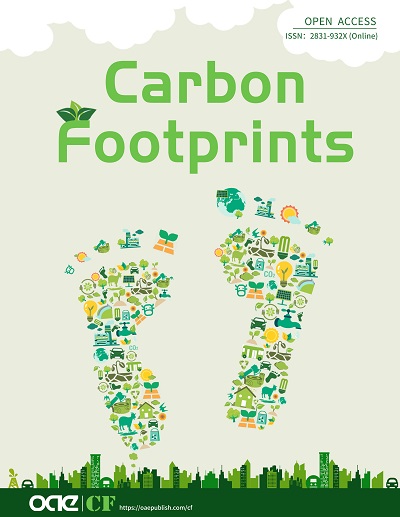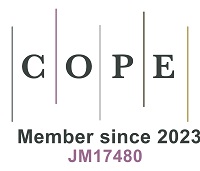REFERENCES
1. UNFCCC. The paris agreement. 2016. Available from: https://unfccc.int/sites/default/files/resource/parisagreement_publication.pdf [Last accessed on 17 August 2023].
2. UNFCCC. Decision 1/CMA.3 glasgow climate pact. Report of the conference of the parties. 2022. Available from: https://unfccc.int/sites/default/files/resource/cma3_auv_2_cover%2520decision.pdf [Last accessed on 17 August 2023].
3. UNFCCC. FCCC/PA/CMA/2021/10/add. 1 decision 1/CMA. 3 glasgow climate pact. 2021. Available from: https://unfccc.int/sites/default/files/resource/cma2021_10a01E.pdf [Last accessed on 17 August 2023].
4. UNFCCC. Report of the conference of the parties serving as the meeting of the parties to the Paris agreement on its fourth session, held in Sharm el-Sheikh from 6 to 20 November 2022. Available from: https://cop23.unfccc.int/sites/default/files/resource/cma2022_10a02_adv.pdf [Last accessed on 17 August 2023].
5. UNFCCC. Aggregate effect of the intended nationally determined contributions: an update. 2016. Available from: https://unfccc.int/resource/docs/2016/cop22/eng/02.pdf [Last accessed on 17 August 2023].
6. UNFCCC. 2022 NDC synthesis report. 2022. Available from: https://unfccc.int/documents/624734 [Last accessed on 17 August 2023].
7. Hernández-Blanco M, Costanza R, Chen H, et al. Ecosystem health, ecosystem services, and the well-being of humans and the rest of nature. Glob Chang Biol 2022;28:5027-40.
8. Elegbede I, Zamboni NS. Ecology and ecosystem. In: Encyclopedia of sustainable management. Cham: Springer International Publishing; 2022. pp. 1-5.
9. Qiu J, Yu D, Huang T. Influential paths of ecosystem services on human well-being in the context of the sustainable development goals. Sci Total Environ 2022;852:158443.
10. Codur AM, Harris JM, Feriz MB. Forests and climate: economics and policy issues. 2022; Available from: https://www.bu.edu/eci/files/2022/12/Forests-module-Dec-2022.pdf [Last accessed on 17 August 2023].
11. Priewe J. Growth in the ecological transition: green, zero or de-growth? 2022; Available from: https://ideas.repec.org/a/elg/ejeepi/v19y2022i1p19-40.html [Last accessed on 17 August 2023].
12. Liebenguth J. Environmental security: a source of legitimacy and contestation in global environmental governance. 2022; Available from: https://search.proquest.com/openview/d32e298f0ba29bd161b031184e2a749e/1?pq-origsite=gscholar&cbl=18750&diss=y [Last accessed on 17 August 2023].
13. Bäckstrand K, Kuyper J, Nasiritousi N. From collaboration to contestation? Earth Syst Govern 2021;9:100115.
14. Seddon N. Harnessing the potential of nature-based solutions for mitigating and adapting to climate change. Science 2022;376:1410-6.
15. Qi JJ, Dauvergne P. China and the global politics of nature-based solutions. Environ Sci Policy 2022;137:1-11.
16. Robertson K, Hugh F. Submission the United Nations high-level expert group on the net-zero emissions commitments of non-state entities (HLEG): Australian academics call on the UN HLEG to set forth recommendations for minimising greenwashing in Scope 3 avoided emissions claims and net-zero commitments. 2022. Available from: http://espace.curtin.edu.au/handle/20.500.11937/89322?show=full [Last accessed on 17 August 2023].
17. Higham C, Higham L, Narulla H. Submission to the high-level expert group on the net-zero emissions commitments of non-state entities. London: Grantham Research Institute on Climate Change and the Environment. 2022. Available from: https://www.lse.ac.uk/granthaminstitute/wp-content/uploads/2022/09/submission-to-HLEG-on-net-zero-commitments-of-non-state-entities-1.pdf [Last accessed on 17 August 2023].
18. Manes S, Vale MM, Malecha A, Pires AP. Nature-based solutions promote climate change adaptation safeguarding ecosystem services. Ecosyst Serv 2022;55:101439.
19. UN-REDD. REDD+ beyond carbon: supporting decisions on safeguards and multiple. 2012; Available from: https://www.un-redd.org/work-areas/safeguards-multiple-benefits [Last accessed on 17 August 2023].
20. UN-REDD. REDD+ Safeguards working group. non-carbon benefits in REDD+: providing incentives and benefits. UN-REDD programme policy brief. 2013; Available from: unfccc.int/sites/default/files/411.pdf [Last accessed on 17 August 2023].
21. IPCC. Global warming of 1.5 °C: summary for policymakers. Incheon, South Korea: intergovernmental panel on climate change. 2018. Available from: http://report.ipcc.ch/sr15/pdf/sr15_spm_final.pdf [Last accessed on 17 August 2023].
22. FAO. Global update report: agriculture, forestry and fisheries in the nationally determined contributions. 2021. Available from: https://www.fao.org/3/cb7335en/cb7335en.pdf [Last accessed on 17 August 2023].
23. Osaka S, Bellamy R, Castree N. Framing “nature-based” solutions to climate change. 2021; Available from: https://www.naturebasedsolutionsinitiative.org/publications/framing-nature-based-solutions-to-climate-change [Last accessed on 17 August 2023].
24. Muthee K, Duguma L, Wainaina P, Minang P, Nzyoka J. A review of global policy mechanisms designed for tropical forests conservation and climate risks management. Front For Glob Chang 2022;4:748170.
25. Wu-Rorrer R, Peter M, Kenny G, et al. Part 3: the history of sustainability: education in action. 2022; Available from: https://www.proquest.com/openview/b472c8fccf5a85e932cf229028979b86/1?pq-origsite=gscholar&cbl=34845 [Last accessed on 17 August 2023].
26. Jeronen E. Forest stewardship council. In: Encyclopedia of sustainable management. Cham: Springer International Publishing. 2022; pp. 1-8.
27. Heyward C, Lenzi D. Improving arguments for local carbon rights: the case of forest-based sequestration. J Appl Philos 2023;40:593-607.
28. Bull G, Boedhihartono A, Bueno G, et al. Global forest discourses must connect with local forest realities. Int Forest Rev 2018;20:160-6.
29. Forest Peoples Programme. FPP E-Newsletter: February 2013: UNFCCC COP 18 makes no concrete decisions on REDD+ in Doha and delays further discussion until mid-2013; Available from: http://www.forestpeoples.org/sites/fpp/files/publication/2013/02/e-newsletter-february-2013-colour-english-lowres.pdf [Last accessed on 17 August 2023].
30. Makoudjou A, Levang P, Chupezi Tieguhong J. The role of forest resources in income inequality in Cameroon. For Trees Livelihoods 2017;26:271-85.
32. Dunaway WA, Macabuac MC. Climate change, land grabbing and the future of asian food security. In: Where shrimp eat better than people. Seattle, WA: Brill; 2022; pp. 303-49.
34. Phiri AT, Toure HM, Kipkogei O, Traore R, Afokpe PM, Lamore AA. A review of gender inclusivity in agriculture and natural resources management under the changing climate in sub-Saharan Africa. Cogent Soc Sci 2022;8:2024674.
36. Derenoncourt E, Kim CH, Kuhn M, Schularick M. Wealth of two nations: the U.S. racial wealth gap, 1860-2020. Cambridge, MA: National Bureau of Economic Research; 2022.
37. Nzunda EF. Forest management plan for implementation of a pilot REDD+ project for masito community forest reserve, kigoma, tanzania for 2012-2017: general description. Asian J Environ Ecol 2021:28;10-20.
38. World Resources Institute. Determining impacts of NDC enhancement on country-level emissions. 2021. Available from: https://www.wri.org/insights/assessing-progress-ndcs?utm_medium=email&utm_source=email&utm_campaign=STATEOFNDCS [Last accessed on 17 August 2023].
39. WWF. 2021 NDC highlights -G20 countries. 2021. Available from: https://wwfint.awsassets.panda.org/downloads/ndcs_we_want___2021_g20_highlights.pdf [Last accessed on 17 August 2023].
40. African Development Bank. GAP ANALYSIS REPORT: African nationally determined contributions (NDCs). 2018. Available from: https://www.afdb.org/fileadmin/uploads/afdb/Documents/Generic-Documents/African_NDCs_Gap_Analysis_Report.pdf [Last accessed on 17 August 2023].
41. WBCSD, WRI. GHG inventory development process and guidance: the GHG protocol corporate accounting and reporting standard. 2015. Available from: https://www.epa.gov/climateleadership/ghg-inventory-development-process-and-guidance [Last accessed on 17 August 2023].
42. UNDP. NDC global outlook report 2021. The-state of climate ambition. 2021. Available from: https://www.undp.org/sites/g/files/zskgke326/files/2021-11/UNDP-NDC-Global-Outlook-Report-2021-The-State-of-Climate-Ambition-V2.pdf [Last accessed on 17 August 2023].
43. UNDP. Gender analysis for ethiopia’s updated nationally determined contribution. 2022. Available from: https://www.undp.org/sites/g/files/zskgke326/files/2022-09/undp_-_ndc_gender_analysis_report_-_final_22-09-22.pdf [Last accessed on 17 August 2023].
44. WWF. WWF checklist for the NDCs we want. 5 areas and 20 criteria. 2020. Available from: https://wwf.panda.org/wwf_news/?364143/NDCsWeWant-WWF-climate-ambition-checklist [Last accessed on 17 August 2023].
45. IPCC. Summary for policymakers. In: Climate change 2014: mitigation of climate change. contribution of working group III to the fifth assessment report of the intergovernmental panel on climate change. 2014. Available from: https://www.ipcc.ch/site/assets/uploads/2018/02/ipcc_wg3_ar5_summary-for-policymakers.pdf [Last accessed on 17 August 2023].
46. IPCC. Climate change: the physical science basis. “Working group I” contribution to the Sixth assessment report of the intergovernmental panel on climate change. Intergovernmental Panel on Climate Change. 2021. Available from: https://www.ipcc.ch/report/ar6/wg1/downloads/report/IPCC_AR6_WGI_Full_Report_smaller.pdf [Last accessed on 17 August 2023].
47. IPCC. Climate change 2022: mitigation of climate change. contribution of working group III to the sixth assessment report of the intergovernmental panel on climate change. 2022. Available from: https://www.ipcc.ch/report/ar6/syr/downloads/report/IPCC_AR6_SYR_SPM.pdf [Last accessed on 17 August 2023].
48. IPCC. Opening address by IPCC chair at the ministerial segment of the HLPF on SD, ECOSOC, general assembly. 2023. Available from: https://www.ipcc.ch/2023/07/18/opening-ipcc-chair-hlpf-ecosoc-general-assembly/ [Last accessed on 17 August 2023].
49. IPCC. Energy is at the heart of the solution to the climate challenge. 2020. Available from: https://www.ipcc.ch/2020/07/31/energy-climatechallenge/ [Last accessed on 17 August 2023].
50. IPCC. The evidence is clear: the time for action is now. We can halve emissions by 2030. 2022. Available from: https://www.ipcc.ch/2022/04/04/ipcc-ar6-wgiii-pressrelease/ [Last accessed on 17 August 2023].
51. IPCC. Climate change widespread, rapid, and intensifying - IPCC. 2021. Available from: https://www.ipcc.ch/2021/08/09/ar6-wg1-20210809-pr/ [Last accessed on 17 August 2023].
52. IPCC. Keynote address by the IPCC chair at the science for adaptation action: nobel laureate high-level dialogue. 2021. Available from: https://www.ipcc.ch/2021/01/22/keynote-science-for-adaptation-action-nobel-laureate-dialogue/ [Last accessed on 17 August 2023].
53. IPCC. IPCC working group III meets in India to further preparations of sixth assessment report. 2019. Available from: https://www.ipcc.ch/2019/09/26/working-group-iii-lam2-ar6/ [Last accessed on 17 August 2023].
54. IPCC. IPCC working group III authors meet in scotland. 2019. Available from: https://www.ipcc.ch/2019/03/27/ipcc-working-group-iii-authors-meet-in-scotland/ [Last accessed on 17 August 2023].
55. IPCC. Summary for policymakers of IPCC special report on global warming of 1.5 °C approved by governments. 2018. Available from: https://www.ipcc.ch/2018/10/08/summary-for-policymakers-of-ipcc-special-report-on-global-warming-of-1-5c-approved-by-governments/ [Last accessed on 17 August 2023].
56. IPCC. IPCC chair’s statement at the opening of the 54th session of the IPCC and 14th session of working group I. 2021. Available from: https://www.ipcc.ch/2021/07/23/ipcc-chairs-statement-p54-opening/ [Last accessed on 17 August 2023].
57. IPCC. IPCC chair’s statement at YOUNGO’s unite behind the science event. 2021. Available from: https://www.ipcc.ch/2021/04/23/ipcc-chairs-statement-unite-behind-science/ [Last accessed on 17 August 2023].
58. Davis SJ, Lewis NS, Shaner M, et al. Net-zero emissions energy systems. Science 2018;360:eaas9793.
59. Vieira LC, Longo M, Mura M. Are the European manufacturing and energy sectors on track for achieving net-zero emissions in 2050? Energy Policy 2021;156:112464.
60. Nunes A, Woodley L, Rossetti P. Re-thinking procurement incentives for electric vehicles to achieve net-zero emissions. Nat Sustain 2022;5:527-32.
61. Costa C Jr, Wollenberg E, Benitez M, Newman R, Gardner N, Bellone F. Roadmap for achieving net-zero emissions in global food systems by 2050. Sci Rep 2022;12:15064.
62. Qian D, Dargusch P, Hill G. Carbon management behind the ambitious pledge of net zero carbon emission - a case study of PepsiCo. Sustainability 2022;14:2171.
63. Yang C, Kwon H, Bang B, Jeong S, Lee U. Role of biomass as low-carbon energy source in the era of net zero emissions. Fuel 2022;328:125206.
64. Pradhan BB, Shrestha RM, Pandey A, Limmeechokchai B. Strategies to achieve net zero emissions in nepal. Carbon Manag 2018;9:533-48.
65. EAUC. Race to zero lexicon. 2023. Available from: https://racetozero.unfccc.int/wp-content/uploads/2021/04/Race-to-Zero-Lexicon.pdf [Last accessed on 17 August 2023].
66. IPCC. Annex I: glossary. In: Global warming of 15 °C. Cambridge University Press. 2022; pp. 541-62. Available from: https://www.ipcc.ch/site/assets/uploads/sites/2/2022/06/SR15_AnnexI.pdf [Last accessed on 17 August 2023].
67. UNFCCC. Race to zero lexicon. 2021. Available from: https://racetozero.unfccc.int/wp-content/uploads/2021/04/Race-to-Zero-Lexicon.pdf [Last accessed on 17 August 2023].
68. Allen MR, Friedlingstein P, Girardin CAJ, et al. Net zero: science, origins, and implications. Annu Rev Environ Resour 2022;47:849-87. Available from: https://www.annualreviews.org/doi/10.1146/annurev [Last accessed on 17 August 2023]
69. Fankhauser S, Smith SM, Allen M, et al. The meaning of net zero and how to get it right. Nat Clim Chang 2022;12:15-21.
70. IPCC. 2019 refinement to the 2006 IPCC guidelines for national greenhouse gas inventories. 2019. Available from: https://www.ipcc.ch/report/2019-refinement-to-the-2006-ipcc-guidelines-for-national-greenhouse-gas-inventories/ [Last accessed on 17 August 2023].
71. Zou J, Ziegler AD, Chen D, et al. Rewetting global wetlands effectively reduces major greenhouse gas emissions. Nat Geosci 2022;15:627-32.
72. Raufer R, Coussy P, Freeman C. Emissions trading. In: Lackner M, Sajjadi B, Chen W, editors. Handbook of climate change mitigation and adaptation. New York: Springer; 2020. pp. 1-59.
73. UNFCCC. Paris agreement of 2015: article 8. 2016. Available from: https://unfccc.int/sites/default/files/resource/parisagreement_publication.pdf [Last accessed on 17 August 2023].
74. World Bank Group. World Bank Group climate change action plan 2021-2025: supporting green, resilient, and inclusive development. 2018. Available from: https://openknowledge.worldbank.org/server/api/core/bitstreams/19f8b285-7c5b-5312-8acd-d9628bac9e8e/content [Last accessed on 17 August 2023].
75. European Bank for Reconstruction and Development. Energy sector strategy: 2019-2023. As approved by the board of directors at their meeting of 12 December 2018. 2018. Available from: https://www.ebrd.com/power-and-energy/ebrd-energy-sector-strategy.pdf [Last accessed on 17 August 2023].
76. Junger S. REDD+ but not ready: why the nationally determined contributions of developing countries are unprepared for REDD+ to be adopted under article 6 of the Paris agreement. 2022. Available from: https://www.researchgate.net/publication/365045161_REDD_But_Not_Ready_Why_the_Nationally_Determined_Contributions_of_Developing_Countries_Are_Unprepared_for_REDD_to_be_Adopted_Under_Article_6_of_the_Paris_Agreement [Last accessed on 17 August 2023].
77. Shah MN, Meraj G, Farooq M, Ishfaq. Climate Change and the Need for REDD+. In: Climate change alleviation for sustainable progression. Boca Raton: CRC Press; 2022; pp. 280-8. Available from: https://www.taylorfrancis.com/chapters/edit/10.1201/9781003106982-14/climate-change-need-redd-mohammad-nayeem-shah-gowhar-meraj-majid-farooq-ishfaq [Last accessed on 17 August 2023].
78. Di Leva CE, Vaughan S. The Paris agreement’s new article 6 rules. 2021. Available from: https://scholar.google.com/citations?view_op=view_citation&hl=en&user=hd5-eTMAAAAJ&citation_for_view=hd5-eTMAAAAJ:qUcmZB5y_30C [Last accessed on 17 August 2023].
79. Rajamani L, Oberthür S, Guilanpour K. Designing a meaningful global stocktake. 2022. Available from: https://scholar.google.com/scholar?hl=en&as_sdt=0%2C5&q=Rajamani+L%2C+Oberth%C3%BCr+S%2C+Guilanpour+K.+Designing+a+Meaningful+Global+Stocktake.+&btnG= [Last accessed on 17 August 2023].
80. World Bank. World development report 2008: agriculture for development. 2008. Available from: https://elibrary.worldbank.org/doi/abs/10.1596/978-0-8213-6807-7 [Last accessed on 17 August 2023].
81. IUCN. IUCN position paper for UNCCD COP15. 2009. Available from: https://www.iucn.org/resources/position-paper/iucn-position-paper-unccd-cop15 [Last accessed on 17 August 2023].
82. Faivre N, Fritz M, Freitas T, de Boissezon B, Vandewoestijne S. Nature-based solutions in the EU: innovating with nature to address social, economic and environmental challenges. Environ Res 2017;159:509-18.
83. Alves A, Gersonius B, Kapelan Z, Vojinovic Z, Sanchez A. Assessing the Co-benefits of green-blue-grey infrastructure for sustainable urban flood risk management. J Environ Manag ;239:244-54. Available from: https://linkinghub.elsevier.com/retrieve/pii/S030147971930338X [Last accessed on 17 August 2023]
84. Bush J, Doyon A. Building urban resilience with nature-based solutions: how can urban planning contribute? Cities 2019;95:102483.
85. Arkema KK, Griffin R, Maldonado S, Silver J, Suckale J, Guerry AD. Linking social, ecological, and physical science to advance natural and nature-based protection for coastal communities. Ann N Y Acad Sci 2017;1399:5-26.
86. Pauleit S, Zölch T, Hansen R, Randrup TB, Konijnendijk van den Bosch C. Nature-based solutions and climate change - four shades of green. In: Kabisch N, Korn H, Stadler J, Bonn A, editors. Nature-based solutions to climate change adaptation in urban areas. Cham: Springer International Publishing; 2017. pp. 29-49.
87. Ossola A, Lin BB. Making nature-based solutions climate-ready for the 50 °C world. Environ Sci Policy 2021;123:151-9.
88. Wamsler C, Wickenberg B, Hanson H, et al. Environmental and climate policy integration: targeted strategies for overcoming barriers to nature-based solutions and climate change adaptation. J Clean Prod 2020;247:119154.
89. Turner B, Devisscher T, Chabaneix N, Woroniecki S, Messier C, Seddon N. The role of nature-based solutions in supporting social-ecological resilience for climate change adaptation. Annu Rev Environ Resour 2022;47:123-48.
90. Hynes S, Burger R, Tudella J, Norton D, Chen W. Estimating the costs and benefits of protecting a coastal amenity from climate change-related hazards: Nature based solutions via oyster reef restoration versus grey infrastructure. Ecol Econ 2022;194:107349.
91. Barnett J, Jarillo S, Swearer SE, et al. Nature-based solutions for atoll habitability. Philos Trans R Soc Lond B Biol Sci 2022;377:20210124.
92. Frantzeskaki N, Ossola A, Bush J. Nature-based solutions for changing urban landscapes: Lessons from Australia. Urban For Urban Green 2022;73:127611.
93. Vasiliev D, Greenwood S. Making green pledges support biodiversity: nature-based solution design can be informed by landscape ecology principles. Land Use Policy 2022;117:106129.
94. UNCED. THZRTEEN ESSAYS ON: the Earth Summit. CONNECT. UNESCO-UNEP environmental education Newsletter. 1992; pp. 1-8. Available from: https://emrlibrary.gov.yk.ca/nrtee/Newsletters/1992%20Winter%20NRTEE-Newsletter.pdf [Last accessed on 17 August 2023].
95. Sotirov M, Winkel G, Eckerberg K. The coalitional politics of the European Union's environmental forest policy: biodiversity conservation, timber legality, and climate protection. Ambio 2021;50:2153-67.
96. Egelston A. The earth summit and its aftermath. 2022; pp. 105-21. Available from: https://link.springer.com/book/10.1007/978-3-031-06990-1 [Last accessed on 17 August 2023].
97. Ge J, Lin B. Does the Kyoto protocol as an international environmental policy promote forest carbon sinks? J Glob Inf Manag 2022;30:1-22.
98. Crowley K. Fighting the future: the politics of climate policy failure in Australia (2015-2020). 2021. Available from: https://wires.onlinelibrary.wiley.com/doi/abs/10.1002/wcc.725 [Last accessed on 17 August 2023].
99. Adriana Erthal Abdenur. Climate action: beyond the Paris agreement. Global governance futures. Available from: https://www.taylorfrancis.com/chapters/edit/104324/9781003139836-21/climate-action-adriana-erthal-abdenur [Last accessed on 17 August 2023].
100. Maslin MA, Lang J, Harvey F. A short history of the successes and failures of the international climate change negotiations. UCL Open Environ 2023;5:e059.
101. Rontard B, Hernandez HR. Emission trading system and forest: learning from the experience of New Zealand. 2022; pp. 169-89. Available from: https://unfccc.int/sites/default/files/resource/202202281808_C2ES_Designing_A_Meaningful_Global_Stocktake_Under_the_Paris_Agreement.pdf [Last accessed on 17 August 2023].
102. Brant C. End game. 2021. Available from: https://books.google.com/books?hl=en&lr=&id=VlckEAAAQBAJ&oi=fnd&pg=PA3&dq=Brant+C.+End+Game.+Cuger+Brant%3B+2021+Mar+17.+&ots=_dQzFlXv85&sig=LObL4FqHwxE6712BEIzsMNw4rzM [Last accessed on 17 August 2023].
103. Goel M. Global protocols to address climate change. In: Science diplomacy for South Asian countries. Singapore: Springer. 2021; pp. 119-30. Available from: https://link.springer.com/book/10.1007/978-981-16-3025-5 [Last accessed on 17 August 2023].
104. He R, Luo L, Shamsuddin A, Tang Q. Corporate carbon accounting: a literature review of carbon accounting research from the Kyoto protocol to the Paris agreement. Account Finance 2022;62:261-98.
105. UNFCCC. Key decisions relevant for reducing emissions from deforestation and forest degradation in developing countries (REDD+). Decision booklet REDD+ (Includes the Warsaw framework for REDD+). 2016. Available from: https://unfccc.int/sites/default/files/compilation_redd_decision_booklet_v1.2.pdf [Last accessed on 17 August 2023].
106. Benjaminsen TA, Svarstad H. Climate mitigation choices: reducing deforestation in the global south versus reducing fossil fuel production at home. In: Political ecology. Cham: Springer International Publishing; 2021; pp. 127-54. Available from: https://link.springer.com/chapter/10.1007/978-3-030-56036-2_6 [Last accessed on 17 August 2023].
107. Urpelainen J. Global environmental politics. 2022. Available from: https://cup.columbia.edu/book/global-environmental-politics/9780231553773 [Last accessed on 17 August 2023].
108. Donald M. The human rights impacts of climate change mitigation and adaptation measures. 2022. Available from: https://www.ssoar.info/ssoar/handle/document/81393 [Last accessed on 17 August 2023].
109. Wang Y, Li L, Yin R. A primer on forest carbon policy and economics under the Paris agreement: part I. Forest Policy Econ 2021;132:102595.
110. Kim D, Kim D, Kim HS, Kim R. Fragmentation and coordination of REDD+ finance under the Paris agreement regime. Forests 2021;12:1452.
111. Romero-Uribe HM, López-Portillo J, Reverchon F, Hernández ME. Effect of degradation of a black mangrove forest on seasonal greenhouse gas emissions. Environ Sci Pollut Res Int 2022;29:11951-65.
112. Khan R, Abbas A, Farooque AA, Abbas F, Wang X. Mitigation of greenhouse gas emissions from agricultural fields through bioresource management. Sustainability 2022;14:5666.
113. Yrjälä K, Ramakrishnan M, Salo E. Agricultural waste streams as resource in circular economy for biochar production towards carbon neutrality. Curr Opin Environ Sustain 2022;26:100339.
114. Faecks B. The evolution of sustainable development in the voluntary carbon market. 2023. Available from: https://edepot.wur.nl/571632 [Last accessed on 17 August 2023].
115. Gupta A. Greenhouse gas emission flux from forest ecosystem. In: Greenhouse gases: sources, sinks and mitigation. Singapore: Springer Nature Singapore. 2022; pp. 63-84. Available from: https://link.springer.com/chapter/10.1007/978-981-16-4482-5_4 [Last accessed on 17 August 2023].
116. Mao SH, Zhang HH, Zhuang GC, et al. Aerobic oxidation of methane significantly reduces global diffusive methane emissions from shallow marine waters. Nat Commun 2022;13:7309.
117. Roth F, Sun X, Geibel MC, et al. High spatiotemporal variability of methane concentrations challenges estimates of emissions across vegetated coastal ecosystems. Glob Chang Biol 2022;28:4308-22.
118. Osland MJ, Chivoiu B, Enwright NM, et al. Migration and transformation of coastal wetlands in response to rising seas. Sci Adv 2022;8:eabo5174.
119. Osland MJ, Chivoiu B, Enwright NM, et al. Migration and transformation of coastal wetlands in response to rising seas. Sci Adv 2022;8:eabo5174.
120. Melack JM, Hess LL. Areal extent of vegetative cover: a challenge to regional upscaling of methane emissions. Aquatic Botany 2023;184:103592.
121. Ye R, Horwath WR. Greenhouse gas emissions in wetland rice systems. In: Yang Y, Keiluweit M, Senesi N, Xing B, editors. Multi-scale biogeochemical processes in soil ecosystems. Wiley; 2022. pp. 141-55.
122. Brears RC. Voluntary carbon offsets financing nature-based solutions. Cham: Palgrave Macmillan. 2022; pp. 213-39.
123. Falconer AD, Buchner BK. Climate finance effectiveness: matching in-depth analysis with stakeholder dialogues. In: Enhanced direct access: the first decade. 2022; pp. 40-61. Available from: https://www.elgaronline.com/edcollchap/book/9781784715656/book-part-9781784715656-8.xml [Last accessed on 17 August 2023].
124. Onbargi A. The climate change - inequality nexus: towards environmental and socio-ecological inequalities with a focus on human capabilities. J Integr Environ Sci 2022;19:163-70.
125. Gupta J. Sustainable development. In: Pattberg PH, Zelli F. editors. Encyclopedia of global environmental politics and governance. 2015; pp. 61-72. Available from: https://t.ly/228Jg [Last accessed on 17 August 2023].
126. Gupta J, Gupta A, Vegelin C. Equity, justice and the SDGs: lessons learnt from two decades of INEA scholarship. Int Environ Agreem 2022;22:393-409.
127. Adamowicz M. Green deal, green growth and green economy as a means of support for attaining the sustainable development goals. Sustainability 2022;14:5901.
128. Lapasovna AS. “Green” economy: realities, prospects and limits of growth. Int Sci Res J 2022;3:623-8. Available from: https://carnegiemoscow.org/2013/09/30/green-economy-realities-prospects-and-limits-to-growth-pub-53271 [Last accessed on 17 August 2023]
129. Soumya B, Ghosh N. Towards an inclusive wealth-based measure of sustainable development. In: Sustainable development in action: examining global north-south divergences. 2022. Available from: https://www.orfonline.org/wp-content/uploads/2022/04/GP-ORF_Sustainable-Development-in-Action.pdf#page=135 [Last accessed on 17 August 2023].
130. Cheng D, Xue Q, Hubacek K, et al. Inclusive wealth index measuring sustainable development potentials for Chinese cities. Global Environ Chang 2022;72:102417.
131. The Rockefeller Foundation. The five characteristics of an inclusive economy: getting beyond the equity-growth dichotomy - the rockefeller foundation. 2016. Available from: https://www.rockefellerfoundation.org/blog/five-characteristics-inclusive-economy-getting-beyond-equity-growth-dichotomy/ [Last accessed on 17 August 2023].
132. Dahal GR, Malla Y, Pokharel BK, Khanal DR. Community forestry policy and legal framework. In: Paudel NS, Ojha H, Banjade MR, Karki R, Tamang S, Editors. Revitalising community forestry in the changing socioeconomic context of Nepal. Kathmandu: EnLiFT2 programme and Forest Action Nepal. Available from: https://tinyurl.com/bdd3568f [Last accessed on 17 August 2023].
134. Pouw N, Mcgregor A. An economics of wellbeing: what would economics look like if it were focused on human wellbeing? IDS Working Papers 2014;2014:1-27.
135. Gupta J, Vegelin C. Sustainable development goals and inclusive development. Int Environ Agreements 2016;16:433-48.
136. Sachs I. Revisiting development in the twenty-first century. Int J Political Econ 2009;38:5-21. Available from: https://www.jstor.org/stable/40471062 [Last accessed on 17 August 2023]
137. Irrera D. Civil society and the politics of development. In: Handbook on the politics of international development. 2022. Available from: https://books.google.com/books?hl=en&lr=&id=K-VvEAAAQBAJ&oi=fnd&pg=PA183&dq=Irrera+D.+Civil+society+and+the+politics+of+development.+&ots=rDxNgp2tJ0&sig=scgD11gy_cfNugLR-mt1u6LTJ44 [Last accessed on 17 August 2023].
138. Heinelt H. Handbook on participatory governance. 2018. Available from: https://scholar.google.com/scholar?hl=en&as_sdt=0%2C5&q=Heinelt+H%2C+editor.+Handbook+on+participatory+governance.+Edward+Elgar+Publishing%3B+2018+&btnG=#d=gs_cit&t=1690031618951&u=%2Fscholar%3Fq%3Dinfo%3Aw976yDb9nUkJ%3Ascholar.google.com%2F%26output%3Dcite%26scirp%3D0%26hl%3Den [Last accessed on 17 August 2023].
139. Kanyinga K. Devolution and the new politics of development in Kenya. Afr Stud Rev 2016;59:155-67.
140. Fitzpatrick JJ, Mullally B. Assessing environmental sustainability using ecological limits expressed as mass flowrates with the inclusion of a sustainable time perspective. ChemEngineering 2019;3:78.
141. Mather-Gratton ZJ, Larsen S, Bentsen NS. Understanding the sustainability debate on forest biomass for energy in Europe: a discourse analysis. PLoS One 2021;16:e0246873.
142. Fay M. Inclusive green growth: the pathway to sustainable development. 2012. Available from: https://books.google.com/books?hl=en&lr=&id=_-dLBmoHFP0C&oi=fnd&pg=PR5&dq=Fay+M.+Inclusive+green+growth:+The+pathway+to+sustainable+development.+World+Bank+Publications+2012&ots=IzidsZWZni&sig=6ySUMFpQ1-zRoRJ33HwgBj_vnJ4 [Last accessed on 17 August 2023].
143. Gündoğdu HG, AytekinA. Effects of sustainable governance to sustainable development, regional association for security and crisis management. 2022. Available from: http://openaccess.artvin.edu.tr/xmlui/handle/11494/4259 [Last accessed on 17 August 2023].







